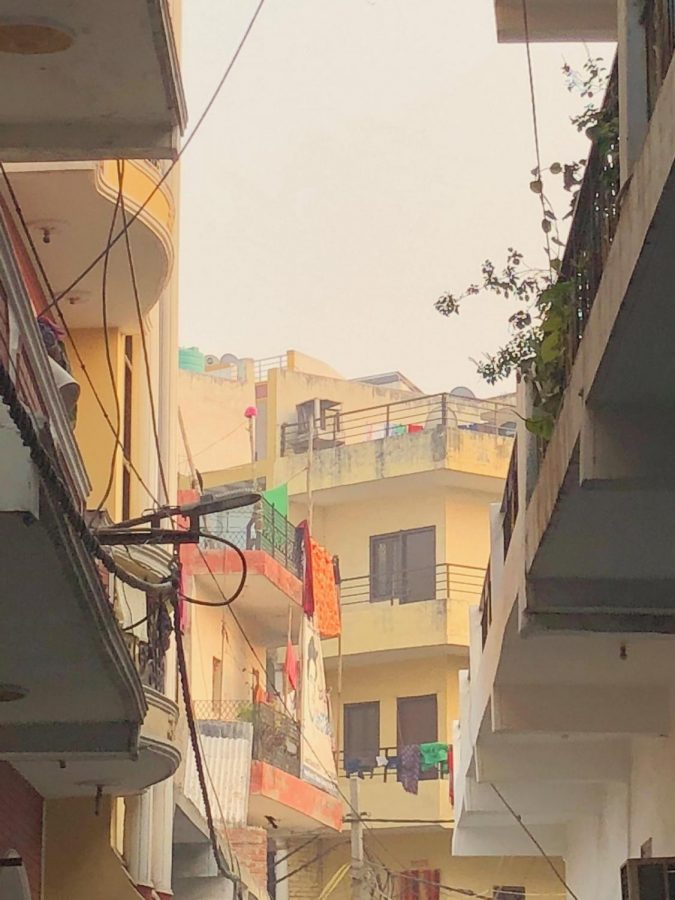Cai: Make incredible memories by studying abroad
Riding an elephant, visiting the world’s first toilet museum and joining a singing battle with local kids: These are only some of the incredible experiences you can get from studying abroad. This winter break, I took a short-term study abroad class in India with the Mandel School of Applied Social Sciences, and it ended up being the best break I’ve ever had.
During our fourteen-day trip, we traveled to the richest places in India such as New Delhi and Jaipur, as well as rural areas buried deep in the mountains. We visited hospitals, non-profit organizations and schools to hear social workers’ initiatives for promoting public health, child welfare and education. We visited temples and historical sites to feel the depth of Indian history. We also went on the streets and markets to see people’s daily lives.
We were learning 24/7 but we were not tired. We had different perceptions every day. We were amazed by how Ayurveda, an Indian health system for the mind and body, fixed problems Western medicine failed to solve. We were awed at the artistic exquisiteness of Taj Mahal. We were also touched by how people were trying their best to make their hometown a better place. It was impossible to learn from just one dimension—we were overwhelmed by feelings and discoveries.
When you are studying abroad, the entire country is your classroom. No need for PowerPoint and quizzes—the entire environment is inundating you with new information. You are immersed in a culture. The color of pedestrian clothes, the smell of street food and the sound of native language all become inspirations. It is up to you what you want to take in. You choose the view to look at, you choose the person to talk to and what questions to ask. You learn by experience, and you remember it with your body and all your senses. There are few experiences as personal, as intimate and as voluntary as studying abroad.
Studying abroad refreshes your understanding. Your values are challenged. You see problems you never noticed in your own country, and you see better solutions for existing ones you never thought of.
I never realized insufficient winter clothing is an issue in India until we talked to the founder of Goonj. While tens of thousands of families have to prepare for winter as a disaster every year, this organization gives them more choice by offering recycled clothes.
To combat the problem of finding a place for abandoned children, which is a serious issue in the U.S. as well, the organization Vatsalya Gram created a method of letting widowed women adopt the kids and helping them build families. You can always find a way to learn a lesson from another country. You stop restricting yourself to what you are used to, and you are able to think globally.
Most importantly, studying abroad helps us reflect our ways of living, our roles as citizens and our existence as humans. In a world so tightly connected, no country can be isolated. What happens in India can affect our lives in the U.S. As the philosophy of Ayurveda believes, we are a whole within the universe. We need to make peace with our own bodies and the environment, and we need to be responsible for them while we live our lives. Studying abroad strengthens a sense of global citizenship.
Moreover, it teaches us to empathize. By appreciating another culture, we can find a lot of similarities. We might eventually find that although we speak different languages and look different, we are the same in essence. We’ll know we are not alone in this world. Getting braids from kids in the orphanage, eating school meals with local teenagers and talking with them about One Direction and Bon Jovi; we were celebrating our humanity together.
That’s the most beautiful part of studying abroad.
Yingying Cai is a first-year anthropology major.


